I miss Black Mirror. Remember when the show offered brutal and incisive insights into our twisted relationship with technology? Sadly, over time, the series underwent its own Black Mirror-esque decline. I had hoped the recently released sixth season would halt, if not reverse, the entropy. Instead, Charlie Brooker gave us lukewarm and lackluster stories that retread old concepts from Black Mirror’s glory days.
The show peaked in its early seasons. The anthology covered everything from embodied AI to virtual reality and reality tv. I’m partial to those episodes that explored questions of surveillance. How can cameras be weaponized as instruments of control? What creative ways might individuals, governments, and corporations repurpose surveillance for profit and perverse pleasures? What are the ramifications when one’s image is captured and broadcasted on every screen?
I Bet You Can Squeal Like a Pig
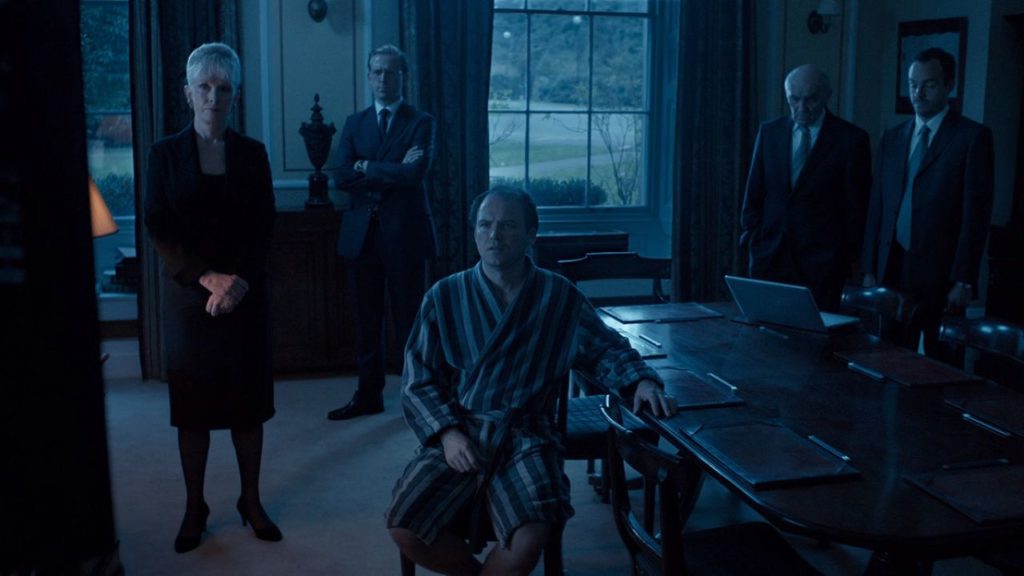
These themes were raised in the pilot episode “The National Anthem.” When the UK’s beloved princess is abducted, the kidnapper threatens to kill her unless Prime Minister Callow has sex with a pig, live on national TV. The PM naturally refuses, but the public, palace, and party pressure him into compliance. The broadcast featuring him and the pig become the most globally watched programme in history.
Most Black Mirror fans have a love-hate relationship with “The National Anthem” due to its gross-out factor. Yet the episode presents an enduringly powerful take on spectacle and schadenfreude. Although the British public is encouraged to turn off their televisions to show national solidarity with the PM, everyone enthusiastically watches him commit bestiality.
Debating the PM’s predicament, one media pundit says, “We love humiliation. We can’t not laugh.” Another describes it as an “…entirely new form of terrorism.” The episode confronts how the act of watching might be weaponized to capture and create shame. Would we, as viewers, exercise our moral responsibility by avoiding spectacles that hurt others? Or would we, too, take punitive pleasure in watching authority figures being humiliated, heedless of their personal suffering?
The Happiest Place on Earth
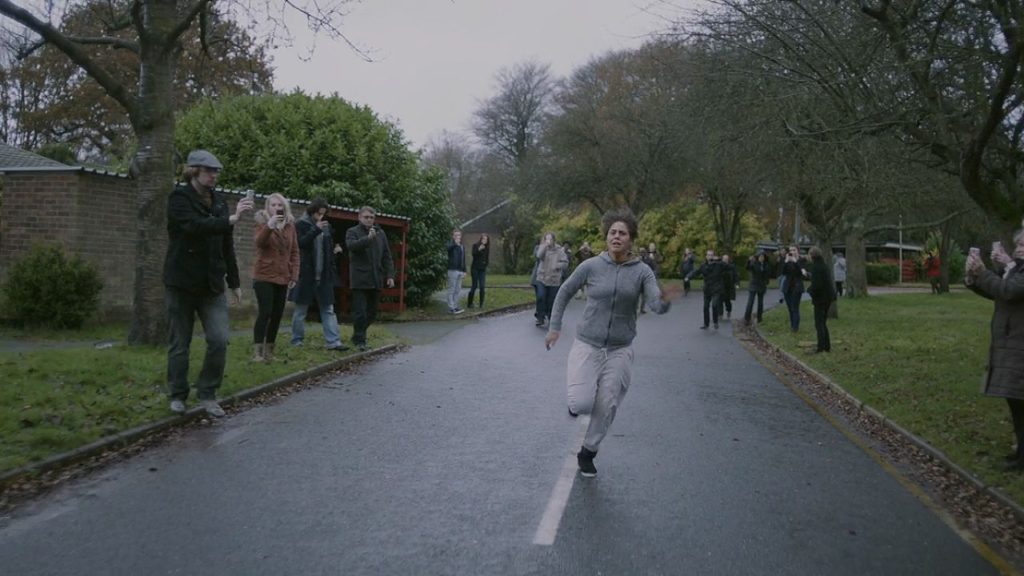
The brilliant season two episode “White Bear” further supercharges the theme of surveillance, spectacle, and schadenfreude. A young woman, Victoria Skillane, awakens with no memories. She is soon chased through the streets by a masked gunman. She screams for help, but in a nightmarish twist, the people she passes use their smartphones to record her instead.
Skillane soon discovers that she is a criminal who recorded her boyfriend killing a child for their pleasure. The judge created a punishment fitting her crime as an enthusiastic spectator of pain. Skillane was sentenced to the White Bear Justice Park, an enormous prison/amusement park built solely for psychologically torturing her. Every day, paying visitors happily participate in witnessing Skillane being terrorized.
In “White Bear,” spectacle contains punitive, pleasure, and profit principles. Skillane is transformed into an abject object of spectacle, and the park creates a festive carnival atmosphere of a modern, highly mediated witch-hunt. The park’s host, Baxter, constantly reinforces the performative nature of Skillane’s suffering. He reminds the audience that their role is to enjoy themselves and take lots of photos.
“White Bear” is wonderfully multi-layered and provocative. Skillane’s hyper-visibility is ethically problematic. What are the implications and complications for justice when Skillane’s punishment involves actively encouraging the public to replicate her crime of voyeurism? As a self-contained surveillance state, the justice park operates on and monetizes schadenfreude by amplifying visitors’ bloodlust to witness a criminal being punished.
Although she is guilty, watching Skillane flee the gunman while being filmed by dozens of people remains among the most chilling moments of Black Mirror for me. This scene captures the bystander effect, a social psychological theory where people are less likely to help someone when others are present. Today, it’s sadly too easy to imagine bystanders choosing to film a crisis with their smartphones instead of helping.
I Saw a Werewolf With a Chinese Menu in His Hand
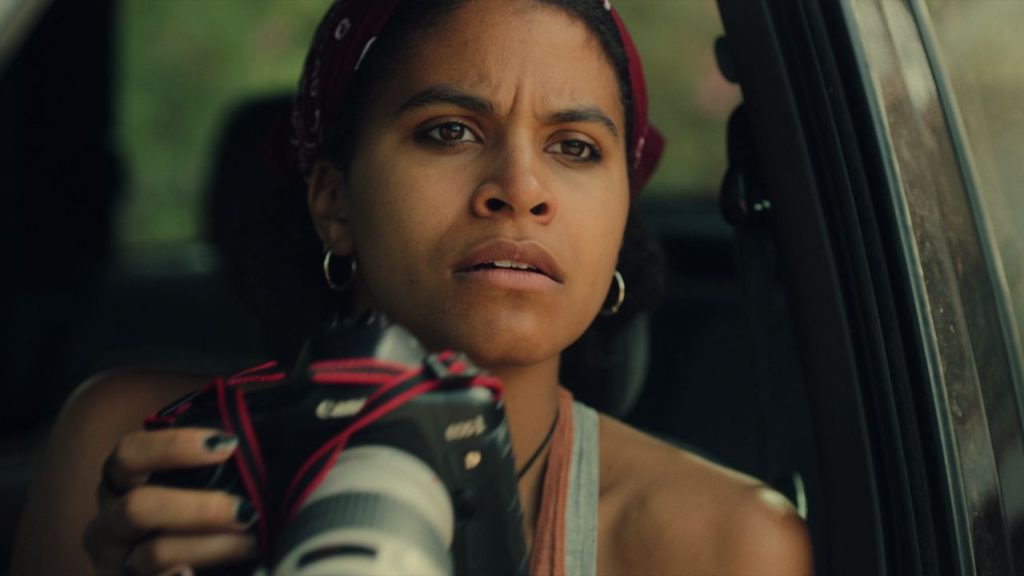
The sixth season episode “Mazey Day” attempts to refresh these themes with an unusual spin. In it, Hollywood photojournalist Bo hunts for Mazey Day, a reclusive actress. The episode tackles toxic celebrity culture and the paparazzi’s predatory pursuit of celebrities. Yet the roles are reversed when Mazey Day bites back. Later, the actress urges Bo to “shoot me.” Although she also has a gun, Bo chooses her camera, symbolically cementing the violence of spectacularisation.
With its weird werewolf inclusion, Mazey Day experimentally steers Black Mirror into Twilight Zone territory. The show still manages to comment on our tortured fascination with technology and surveillance. Yet Black Mirror was superior when it had a pig and a white bear.

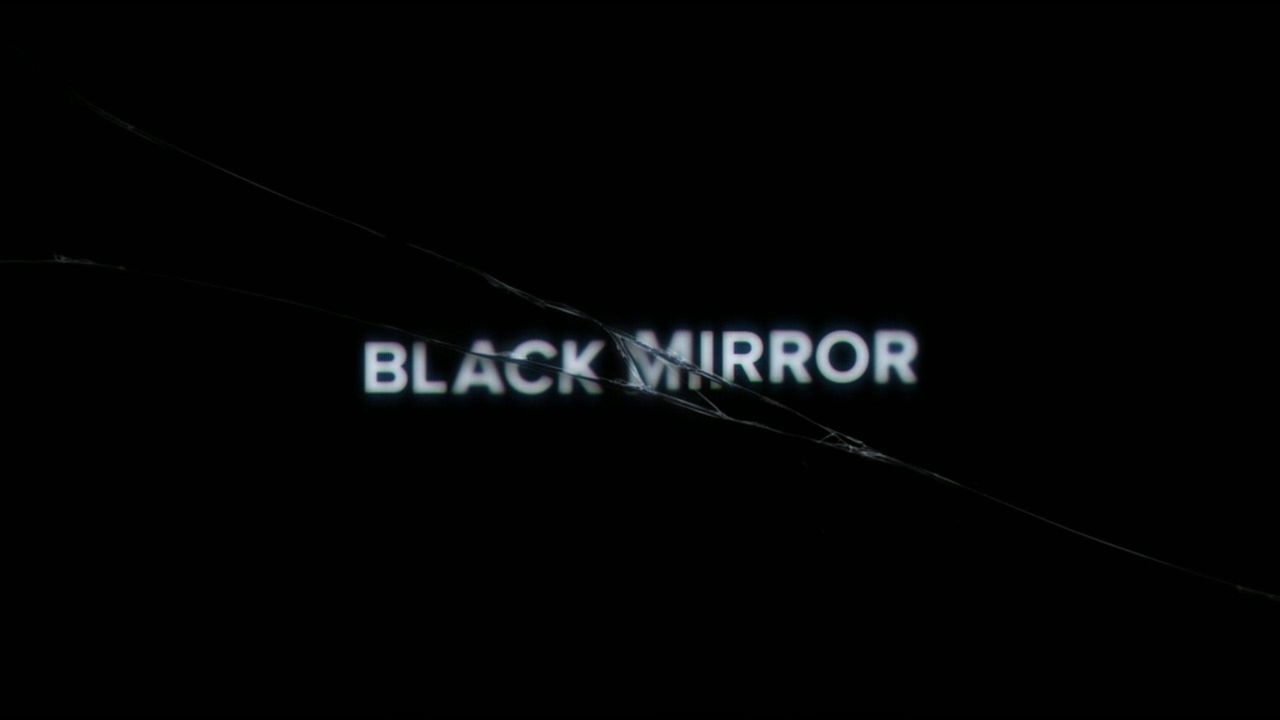
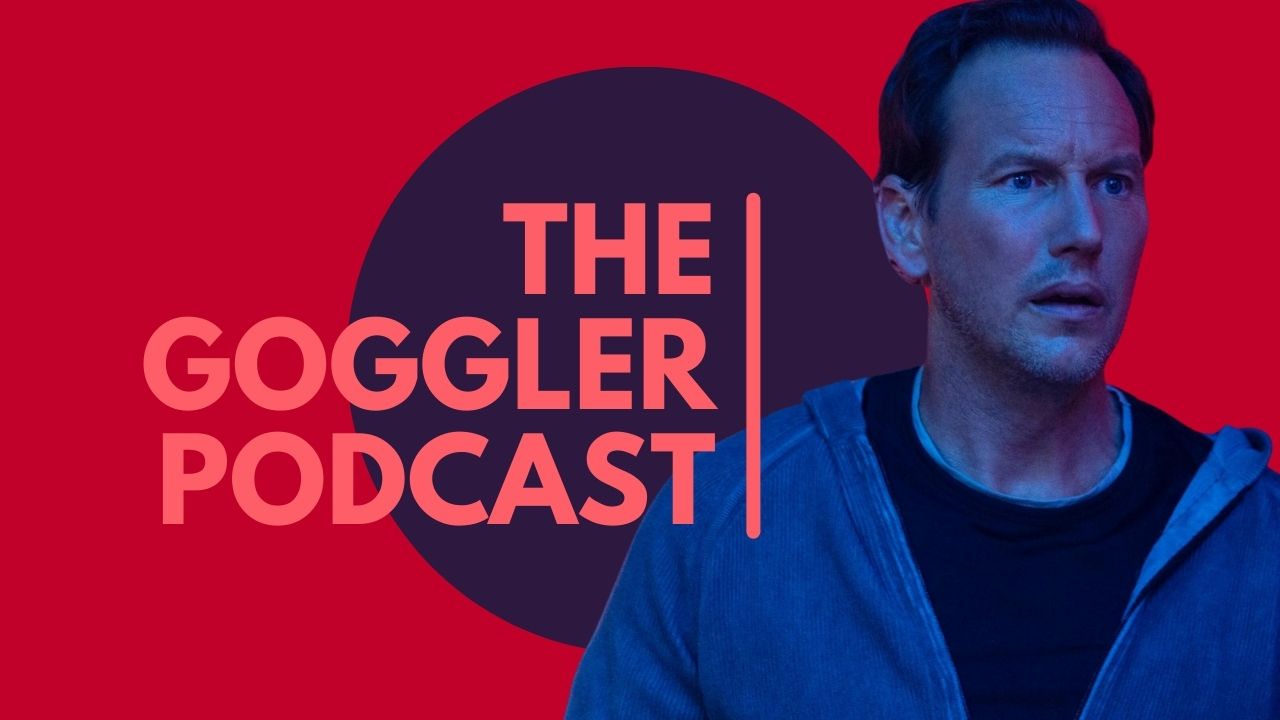
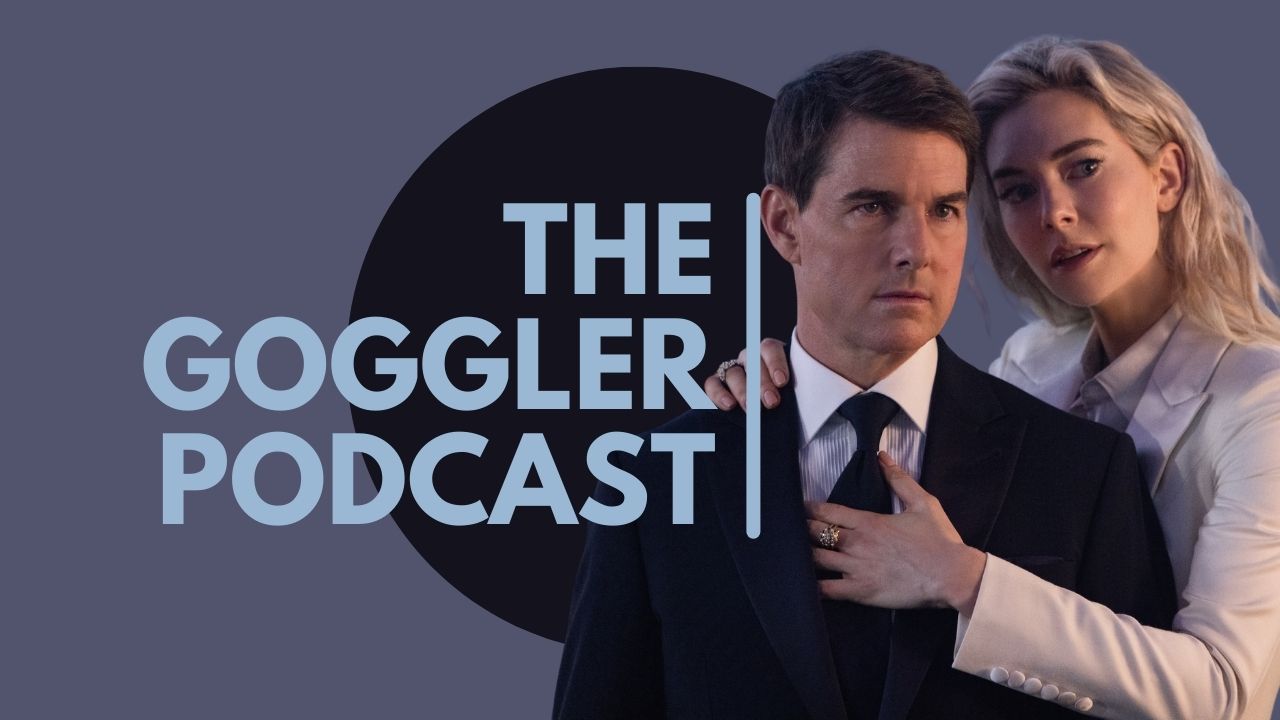
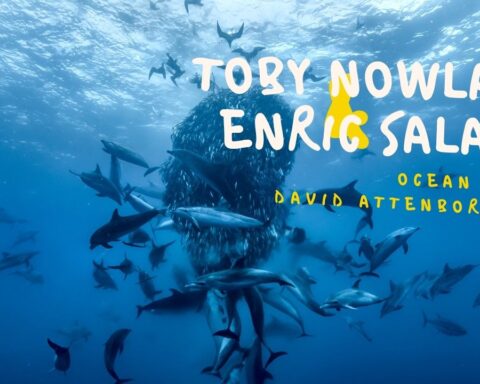

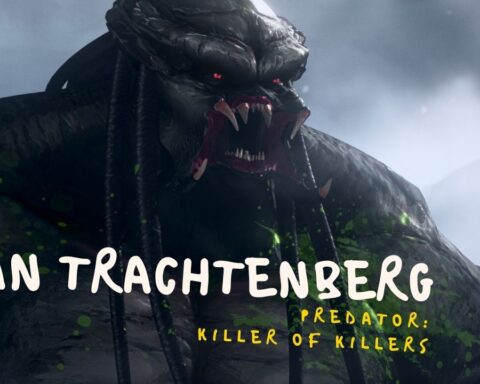


Follow Us